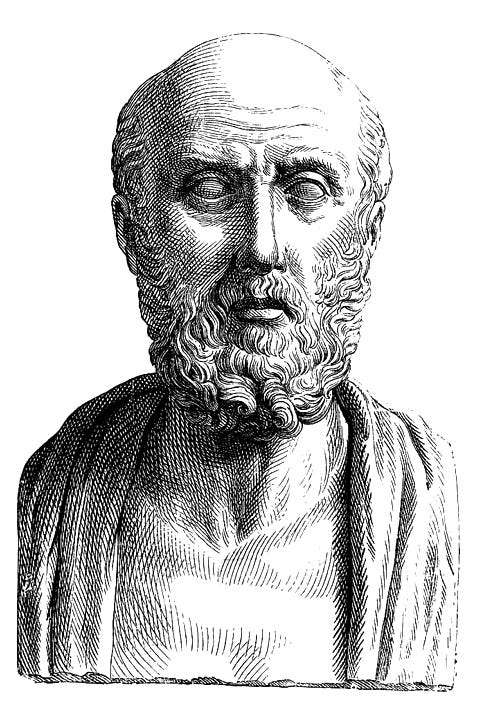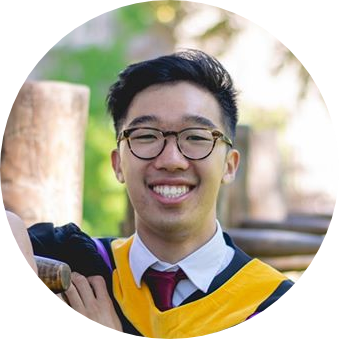Compassion vs. Burnout
A reminder of the limits of medicine
Clinician burnout is a huge problem in medicine, and can lead to lower patient care quality, higher medical error risk, physician alcohol and drug abuse and addiction, and physician suicide (source). In Canada, 30% of residents and practicing physicians report experiencing burnout (emotional exhaustion and/or depersonalization) at least weekly. Just last week, an emergency physician working in the COVID-19 units in New York died by suicide — now we don’t know the precise circumstances around her death, but based on the New York Times article, I think it is fair to say that stress from work likely played a role.
The modern Hippocratic Oath, based on the original oath of ethics traditionally attributed to the ancient Greek ‘father of medicine’ Hippocrates, is taken by new physicians around the world as a pledge to uphold specific ethical standards upon entering the profession. These include age-old concepts such as “first do no harm”, the art of medicine, and patient confidentiality, as well as more recent concepts such as social determinants of health, preventative health, and planetary health. Nowhere does it pledge to work until you are emotionally exhausted and/or depersonalized.

Hippocrates, the Father of Medicine. Public domain.
There is one line in particular however, warning physicians to stay humble and not to play God:
Most especially must I tread with care in matters of life and death. If it is given me to save a life, all thanks. But it may also be within my power to take a life; this awesome responsibility must be faced with great humbleness and awareness of my own frailty. Above all, I must not play at God.
— The Modern Hippocratic Oath (Louis Lasagna, 1964)
I think this is forgotten sometimes. Although medicine has started moving away from the paternalistic, “just tell me what to do, doc” to a more patient-centred approach, I think the idea of a superhuman doctor who believes they can save everyone is at least still subconsciously believed by some people. And while that mentality makes for fantastic, heroic, romantic TV programming (see House, M.D., Grey’s Anatomy), it is detrimental for actual physicians—namely, I believe it contributes to burnout.
It has never been more clear than in a pandemic that being a doctor is inherently stressful: they are caring for hurt, sick, scared, dying people and their families—there is a lot of responsibility and little control. When this is combined with the idealistic idea that doctors can save everyone, with the type A personality (achievement-oriented, competitive, likes to be in control of their lives) that is common among doctors, and along with the overall compassionate/empathetic nature of patient-care, it is a recipe for disappointment.
Here are some truths that I wish I could remind all the residents and physicians struggling with burnout, lack of purpose, and lack of control:
- You will not, and cannot save everyone. People will die under your care. Patients will continue to make decisions that harm their own health. Medical errors will happen. You will not, and cannot save everyone.
- And that’s okay. Disease and illness are not your fault. It’s not like it’s portrayed on Scrubs, where every conflict is resolved in 30 minutes or less (for the record, Scrubs was actually amazing at portraying some of these difficult scenarios)
- And that doesn’t mean you don’t stop and weep and grieve for those that pass away under your care. Of course you do that. You are only human, and you’ve made real human connections with your patients in the time that you knew them. But eventually, you need to wipe away your tears, take a deep breath, and give your next patient the best possible chance of doing well with the help of everything modern medicine has to offer.
An example of the conflict between compassion vs. burnout was illustrated by Dr. Scott Weingart, an ED intensivist from New York (emergency doc with additional training in critical care). He presented what he admitted was a controversial opinion on his EMCrit podcast in July 2019. This was regarding retaining a patient’s humanity and personhood, and how sometimes detachment or compartmentalization is important during an emergency resuscitation:
“In resuscitation in particular, I think there are people-oriented doctors, and care-oriented doctors. I just don’t think you could really perform resuscitation at the level it should be performed, if you’re retaining a stance of people-orientation. Optimization of care is what our patients want during a resuscitation. They might like as a bonus the compassion, and that’s there, but if you had to pick one or the other, then clearly the care is what matters—because they are in a life and death scenario. And optimizing the care, in my mind, in some ways means taking away the personhood and converting the person in front of you into a patient. Because we have to do a whole bunch of things that rob a person of their dignity in order to do resuscitation, and if they retain their personhood, then that dignity-stealing becomes unacceptable, it’s a barrier you can’t cross. So we in resuscitation have to convert a person into a patient to provide optimal care, and that conversion allows us that distance to actually be able to do the things we need to do. [In a resuscitative field] if compassion is leaking over to your minute-by-minute care […] you will burn out so quickly. ”
— Dr. Scott Weingart, EMCrit Podcast
Of course, the debriefing and emotional processing still needs to happen after the resuscitation. I remember the very first time I was involved in one was in the Emergency Department: our patient was an elderly gentleman who had a fall down the stairs at home. He was really sick, and needed a bunch of vasopressors (blood pressure raising medications) to stay alive. These were already started by the paramedics on ambulance, so there wasn’t really any further resuscitation to be done. The working hypothesis was a brain bleed. Due to his age and comorbidities (other medical conditions), he wasn’t a candidate for surgery—the risks would be too high.
My preceptor and I went into the family room with the patient’s family. Worry was etched into each of their faces. I remember feeling extremely awkward, not sure where to stand, how to look, how to feel. My preceptor did an amazing job, explaining exactly the situation and best estimate of prognosis, with a level tone—not too soft and not too firm. Tears were shed and we sat in the heavy silence until they were ready. Then we invited them to the resus bay to pay their last respects, and stopped the vasopressors with the patient surrounded by family.
Afterward, my preceptor pulled me aside and asked me how I felt about the whole thing. I was so busy feeling awkward I hadn’t gotten around to processing how I felt yet, but I really appreciated that he asked. He told me, “that was probably the most important thing you will see today. What was just a tiny part of our day, these people will remember for the rest of their lives.” And that will probably stick with me for the rest of mine.
Then, we went and saw the rest of the patients that needed to be seen.
In summary, medicine can be intensely stressful. Many clinicians and residents experience burnout, related to a lack of control, responsibility for sick patients, and the empathetic nature of medicine. Humility and recognition of the limits of medicine is important and should replace the romantic idea that doctors are superhuman and can save everyone if they worked hard enough. A real-life example of the balance between compassion, optimal patient care, and burnout is how in emergency situations, detachment or compartmentalization can help clinicians focus on saving the dying patient in the moment. Debriefing after a resuscitation is also an important way to reduce burnout.
Disclosure: I recognize that I am not a doctor and may not have true insight into the full experience of what practicing medicine is like. However, I believe that these are truths that I’ve thought about and witnessed throughout my albeit limited clinical encounters, that hold true regardless of experience.
